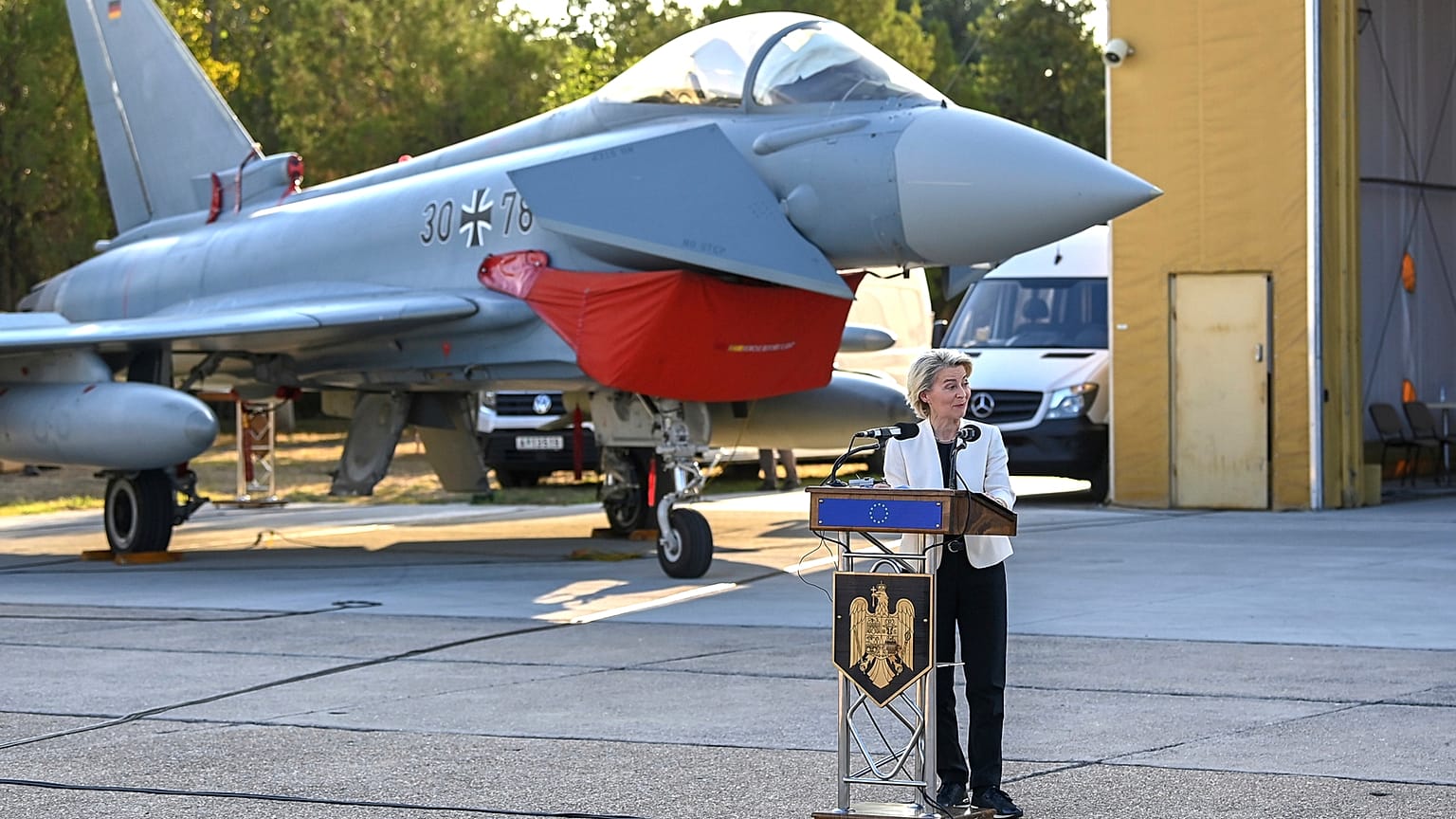
| Published September 5, 2025
A recent incident involving European Commission President Ursula von der Leyen’s plane has sparked controversy and debate. Initially, Bulgarian authorities reported GPS interference during her flight over Bulgaria, leading to suspicions of Russian jamming. However, subsequent investigations have cast doubt on these claims.
Initial Claims and Reactions
On September 1, 2025, reports emerged that von der Leyen’s aircraft experienced GPS disruptions while approaching Plovdiv Airport in Bulgaria. The European Commission cited Bulgarian authorities suggesting that the interference was due to Russian actions, describing it as “blatant interference from Russia.”
In response, NATO expressed concern over the incident, with officials indicating a potential need to counteract such interference. The European Commission also considered the event a serious matter, highlighting the implications of GPS jamming on aviation safety and security.
Bulgarian Authorities’ Reversal
Contradicting the initial reports, Bulgarian officials later denied any evidence of prolonged GPS jamming during von der Leyen’s flight. Prime Minister Rosen Zhelyazkov stated that such incidents were common and not unusual in the context of ongoing regional tensions. Deputy Prime Minister Grozdan Karadjov further clarified that Bulgarian aviation authorities had not provided information to the European Commission suggesting Russian involvement. Instead, they had only reported minor GPS issues to the European Aviation Safety Agency without attributing them to any specific cause.
Ongoing Debate and Speculation
Despite the official reversal, some experts and media outlets continue to question the nature of the GPS disruptions. Analyses of flight data and expert opinions remain divided, with some still supporting the possibility of Russian spoofing, while others view the incident as a misinterpretation or overreaction.
The incident has also fueled political narratives, with some commentators suggesting that the initial claims were part of a broader strategy to divert attention from domestic issues or to rally public support against perceived external threats.

Copyright Eduard Vinatoru/Copyright 2025 The AP. All rights reserved.
 Implications of the alleged GPS jamming incident involving Ursula von der Leyen’s plane over Bulgaria:
Implications of the alleged GPS jamming incident involving Ursula von der Leyen’s plane over Bulgaria:
1. Aviation Safety Risks
-
GPS is a key tool for modern navigation, including approach, landing, and in-flight safety.
-
Even brief GPS disruptions can pose serious risks to aircraft, especially in crowded airspace or near airports.
-
Raises questions about the resilience of aviation systems against electronic interference.
2. Geopolitical Tensions
-
Initial accusations of Russian involvement heightened East-West tensions.
-
Alleged interference could be perceived as a form of hybrid or asymmetric warfare.
-
Even if later reversed, such claims contribute to distrust between NATO/EU and Russia.
3. Information Warfare and Public Perception
-
The rapid spread of unverified reports shows how misinformation or misinterpretation can influence public and political discourse.
-
Media coverage of “attacks” or threats can be leveraged for political purposes, domestic or international.
-
The reversal by Bulgarian authorities highlights the need for careful fact-checking before public statements.
4. Security and Defense Policy
-
Could push the EU and NATO to enhance anti-jamming measures or adopt alternative navigation systems.
-
Prompts investment in satellite redundancy, electronic countermeasures, and cybersecurity for critical infrastructure.
5. Political and Diplomatic Fallout
-
The initial accusation risked diplomatic tension between Bulgaria, the EU, and Russia.
-
Even after Bulgaria walked back the claim, the incident may strain trust or affect negotiations on security cooperation.
-
Could become a talking point in domestic politics for EU and member-state leaders.
6. Broader Strategic Implications
-
Demonstrates the growing vulnerability of modern states to non-kinetic threats like GPS spoofing/jamming.
-
Highlights how small technical incidents can have outsized political consequences in a hyper-connected, media-driven world.
 Overall Takeaway:
Overall Takeaway:
The recent GPS incident involving European Commission President Ursula von der Leyen’s plane over Bulgaria highlights both genuine security concerns and the pitfalls of political overreaction. Bulgarian authorities initially suggested Russian involvement in jamming the aircraft’s GPS, but they later admitted there was no concrete evidence of interference. This reversal raises questions about the credibility of initial claims and reflects a broader tendency among EU institutions and the media to amplify fears without verification. From a right-leaning perspective, this demonstrates how bureaucracies can rush to attribute blame to external actors, creating unnecessary geopolitical tension.
While GPS jamming is a legitimate security concern for aviation and defense, the politicization of this incident illustrates how unverified claims can be exploited to push broader narratives. The European Commission and NATO’s swift characterization of the event as a Russian threat, despite limited evidence, underscores a reactive rather than strategic approach to security. This pattern of overreaction risks undermining credibility and diverts attention from practical measures needed to protect airspace and critical infrastructure.
Moreover, the incident reflects on the EU’s bureaucratic culture, where alarmist messaging can take precedence over cautious, evidence-based analysis. Right-leaning observers would argue that national governments and EU institutions must focus on tangible security improvements rather than fueling media hysteria or escalating tensions unnecessarily. Ensuring aviation safety, investing in anti-jamming technologies, and maintaining strategic prudence should take priority over politically charged narratives.
In conclusion, while the safety of European airspace is undeniably important, the von der Leyen GPS episode serves as a cautionary tale. It was less a deliberate Russian attack and more a reflection of how fear-driven policymaking and rushed attribution can create unnecessary political friction. For a right-leaning perspective, the key takeaway is that the EU and allied institutions must prioritize evidence-based security measures, avoid exaggerating threats, and address real risks efficiently without succumbing to alarmist narratives.





Be the first to comment